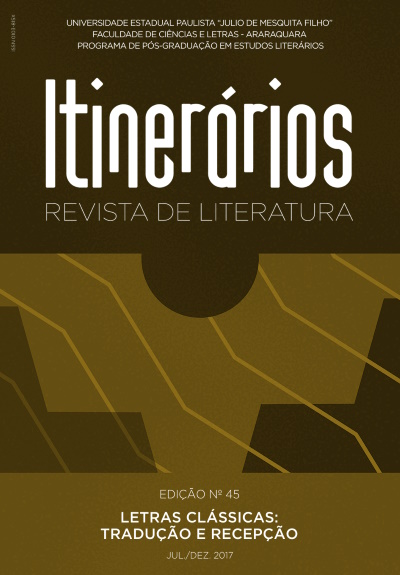Adapted translation for the deaf reader: multiple spaces and cultures in contrast
DOI:
https://doi.org/10.58943/irl.vi45.8985Keywords:
Adapted translation, Chronotopia, Deaf literature, Topoanalysis, Topophilia,Abstract
In this paper we propose an interpretative reading of the text Patinho surdo (KARNOPP; ROSA, 2011), a culturally adapted translation for deaf people as a classic retelling of The ugly duckling. From the point of view that the literary work is a vibrant space of relations, processes and events experienced by characters that interact in overlapping time-spaces related to one another, the proposed reading considers the notions of chronotopia (BAKHTIN, 1993), topophilia (BACHELARD, 1972; TUAN, 2012) and topoanalysis (BORGES FILHO, 2007), terms that include social interrelations in space-time, the feeling towards the environment and the symbolic representations present in the time-space of the literary work. We inferred in our reading that: (i) the literature for deaf people seeks, through culturally adapted stories, to tune the reader with the perspective of world of the deaf people; (ii) the narrative space is configured as a place of affirmation of values, habits and formation of the deaf people ethos and also (iii) that the deaf literature, still emergent and little socially (re)known, intends to mark its space within the literary field; therefore, the literary work can serve as a valuable tool in this process.
Downloads
Published
Issue
Section
License
Os manuscritos aceitos e publicados são de propriedade da revista Itinerários. É vedada a submissão integral ou parcial do manuscrito a qualquer outro periódico. A responsabilidade do conteúdo dos artigos é exclusiva dos autores. É vedada a tradução para outro idioma sem a autorização escrita do Editor ouvida a Comissão Editorial.

